The Bestwood Tragedy
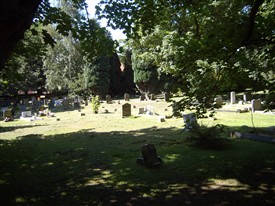
St Mark's churchyard, Bestwood village
Last resting place of one of the victims
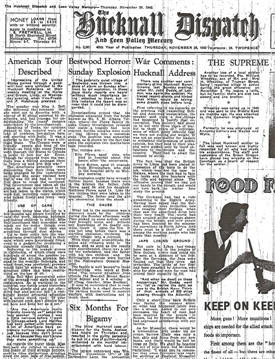
The Hucknall Dispatch, November 26 1942
Reporting 'Bestwood Horror: Sunday Explosion'
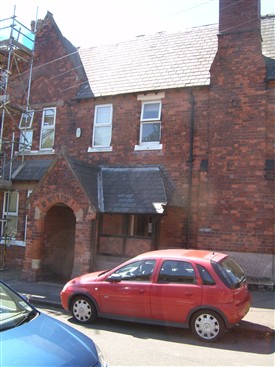
3 St Albans Terrace in 2012
Scene of the 1942 tragedy
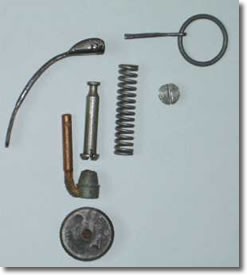
Mills bomb components
The detonator is second from the bottom, above the round base plate
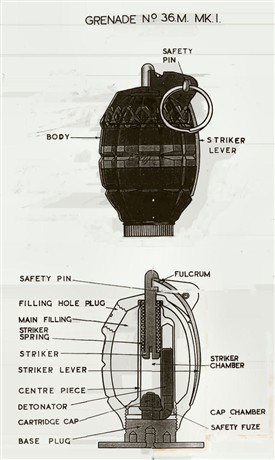
Mills bomb cross section
showing position of detonator
A fatal wartime accident in Bestwood Village
By Ralph Lloyd-Jones
Thousands of children were evacuated out of Birmingham as early as August 1939, the month before war was declared. Barry Sutton, and his older brother Ronnie, from West Bromwich, found themselves in the mining community of Bestwood, Nottinghamshire. Barry was lucky enough to make a local friend of the same age, Eric Plows - both of them had been born in 1932. Eric’s dad John was a surface foreman at the colliery, and he had two sisters, Kathleen (who was four years older than the boys), and two years younger Jean.
It must have been fun to escape the grimy industrial streets of Birmingham – and the threat of the Luftwaffe – and be transported to Errol Flynn’s Robin Hood country. Although it was much safer than Birmingham, the army were training in Bestwood Forest (now the Leen Valley Country Park) and the youngsters were warned never to pick up anything suspicious that the soldiers might have left behind. There were also posters at school ‘describing the various bombs used in modern warfare, with instructions not to touch them.’
On Sunday November 22nd 1942 the 10-year olds Barry and Eric had been playing in the woods. They were back in the kitchen in the basement of 3, St Albans Terrace, with Mr Plows (aged 59 and just returned from his weekend shift at the pit) and Eric’s two sisters. The lads had been examining a mysterious metal object they’d found, but it didn’t seem of much interest so they chucked it in the fire. The sleepy sabbath afternoon village was rocked by a terrible explosion. They had almost certainly picked up a detonator, probably from a hand grenade/Mills bomb, accidentally left by the soldiers. Everyone in the confined space of the kitchen was injured, the two boys severely. Police and neighbours rushed to help and ambulances were called.
Eric Plows died in Nottingham General Hospital five hours after the explosion. Barry survived until the following morning before succumbing to his injuries. Eight-year old Jean lost an eye. Her brother was buried at St Mark’s Church the following Thursday, while Barry’s body was returned to Birmingham for internment. According to the Hucknall Dispatch, the many floral tributes to the unfortunate Eric included ones from ‘Mam and dad and Kathleen’, ‘Bestwood Park School – teachers and scholars’, ‘Bestwood Cubs’, and, most poignant of all, ‘Ronnie Sutton (pal).’
An inquest was opened, but it had to be adjourned until Mr Plows and Jean were fully recovered. This may explain why the boys’ deaths were not registered until nearly a year later, September 1943. Rather remarkably the National Probate Calendar (Index of Wills and Administrations) for 1945 records that Eric John Plows left effects worth £200 – quite a large sum in those days.
1942 was perhaps one of the bloodiest years in human history as total war escalated and millions worldwide suffered untimely deaths. That does not make the Bestwood explosion any less tragic, though it is to be hoped that other children were afterwards much wiser about avoiding deadly litter, remembering the sad fate of Barry Sutton and Eric Plows.